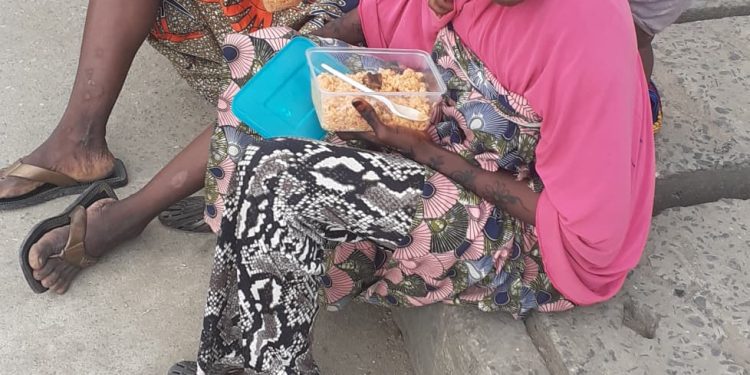Hajara Muhammad, 30, sits on a bustling Lagos street corner, her children, Aisha, 10, Umar, 8, and tiny Zainab, 2, gathered around her. Far from their northern home, they beg together, struggling to survive.
Hajara’s husband was killed in a conflict in their village in the north. With no means to provide, she fled to Lagos, seeking refuge. “I had no choice but to bring my children to the streets,” she says, her voice laced with despair.
As they beg, passersby often ignore or scorn them, unaware of their story. But Hajara’s resolve remains unbroken. “My children’s future is my only concern,” she declares.
Aisha, the eldest, understands their plight. “Mama works hard,” she says. “We help her because we love her.”
Umar and Zainab, though young, grasp the harsh realities. “We beg so we can eat,” Umar explains.
Nigeria’s internal displacement crisis has left millions like Hajara’s family vulnerable. “We need support, not sympathy,” she emphasizes.
“Seeing Hajara and her children together, struggling, breaks my heart,” says Jummai Ibrahim, a local community volunteer. “We must address displacement’s root causes.”
Hajara’s story exposes Nigeria’s social fault lines: poverty, displacement, and limited opportunities.
Despite hardships, Hajara’s family remains united. “We’re all we have,” she says.
As night falls, they pack up their makeshift begging station and head to their cramped, rented room. Tomorrow will bring another day of struggle, but Hajara’s determination remains unwavering.
“I’ll do whatever it takes to give my children a better life,” she says, her eyes shining with resilience.
This story was written by Enioluwa Gloria, MSc Student of Mass Communication (2023/2024), University of Lagos, following the training on Disability Reporting facilitated by Blessing Oladunjoye, Publisher of BONews Service.

